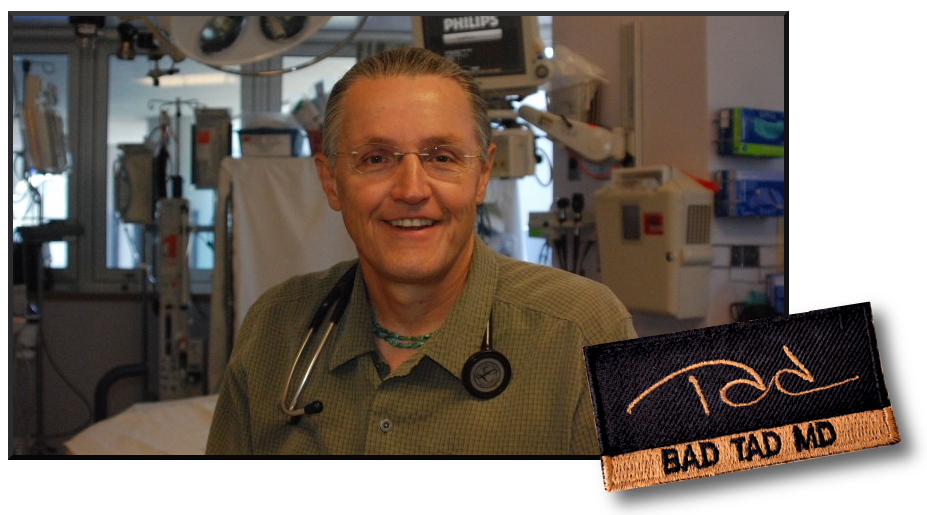Medical Alert, Room 1A
If medics call our hospital and report they are bringing someone who may need immediate attention, a Medical Alert is called. This gets everyone’s attention and allows the full capacity of the department to be available for whatever the patient needs.
On Thursday night, a Medical Alert was called for Room 1A. As they came in, I saw a shriveled old man with contracted extremities, staring blankly into space. He was accompanied by medics who were not rushed and did not seem to be very worried about what was going on.
When we were all in the room, I learned the patient was demented, bed-ridden and unable to speak. They said his wife was supposed to have signed papers making him a “No Code.” That means he should not be put on a breathing machine or have CPR done in case he were to try to die. However, before the wife could sign the papers, she took ill herself so the patient was a “Full Code.”
They said the patient had not been eating for weeks and was only getting sugar water through an IV. They said his son had been at the nursing home earlier in the evening. The nurses had called the ambulance soon after he left.
I took a quick look at the patient and it was my impression he was dying. In the nursing home, he had a good blood pressure but it was low when measured in the ambulance and very low when he arrived at the hospital. His pulse was below 30 and he was hardly breathing.
The nurses made busy to start resuscitating him. I stopped them, explained that the patient was all but dead and trying to revive him would be futile. I felt our goal should be to make him comfortable rather than try to revive him. I asked them if anyone felt uncomfortable with that approach and they all agreed. I left to quickly get a phone number to call the son.
When I got the son on the phone, I told him who I was and told him his father was dying. I told him it was my impression that trying to revive him would be futile and I wanted to do everything I could to make sure his father was comfortable and not suffering.
He then asked me to just put his father on “the breathing machine” for the night and they would be in tomorrow to see him.
I was astounded. If he saw his father earlier in the evening, he knew how debilitated his father was. I had just told him his father was dying. In my mind, any son with insight and compassion would agree to let him die in peace.
From my perspective, I could see the nightmare it would be to try to intubate such a contracted, debilitated old man. I could see how horrible it would be to do CPR on him, crunching his chest and cracking his ribs with each chest compression. I knew that an old man who is dying is not going to suddenly be cured by CPR and a ventilator. I knew he would not be fine until it was convenient for his son to get his mother and come to the hospital the next day and decide what to do about their dying loved one.
I was so set back by his casual and uninsightful response that I didn’t know just how to respond to him. I gently tried to get him so see that his response didn’t reflect the true urgency of the situation. “Your father is dying right now,” I said.
“Do everything you can and we will see him in the morning,” was his response.
Unable to get the son to appreciate what was going on, I hung up and headed back to the room, torn. On one hand was the obvious futility of the situation and my desire to not cause suffering in someone who I believed should just be allowed to die in peace. On the other hand was a family member who couldn’t share my vision and just wanted to stay in bed and put off a difficult talk with his mother until the next day.
When I got back in the room, my mind was made up for me. The patient was not breathing, his heart was not beating. He was dead and any effort to reverse that would be considered futile care. I pronounced him dead and went and called the son with the bad news.
When the son arrived later, he said his father had not eaten for weeks and the nursing home doctor had refused to have a feeding tube placed. To me, this meant that the doctor considered the feeding tube as futile. So, whether the family had signed the No Code papers or not, I feel I did the right thing for my patient by just allowing him to pass in peace.
Trackback from your site.
